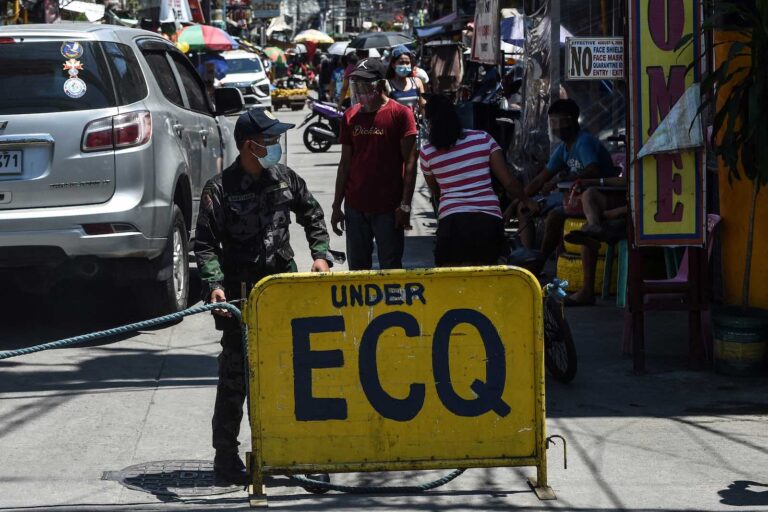
Apr 5, 2021 Ralf Rivas
MANILA, Philippines
People being left with no choice but to go out ‘could stifle efforts’ to stop the COVID-19 surge, says ING Bank Manila senior economist Nicholas Mapa
Economists warned the government that meager and delayed cash aid to poor households could force people to go out and look for work, defeating the purpose of a hard lockdown.
ING Bank Manila senior economist Nicholas Mapa told Rappler on Monday, April 5, that authorities should act fast and give out financial assistance if they want COVID-19 infections to slow down.
“Lockdowns with little cash aid may result in low compliance, with citizens likely leaving their homes in search of food, a development which could stifle efforts to slow the spread of the disease,” Mapa said.
The government is giving only P1,000 in cash or in kind per person.
The aid, to be given out around the second week of April, will be sourced from unused funds under the Bayanihan to Recover as One Act. The 2021 budget does not have line items for cash assistance in case of another enhanced community quarantine (ECQ), the strictest lockdown category.
President Rodrigo Duterte’s economic team has rushed to reopen the ailing economy despite rising coronavirus cases. But economists warned that public health and the economy are intertwined, with the COVID-19 crisis badly needing to be addressed first.
“The longer we delay stamping out the virus, the higher the probability of a return to ECQ and a quick revert to reopen the economy may backfire once more and result in a third installment of the ECQ series,” Mapa said.
Ateneo de Manila University economist Alvin Ang noted that the ECQ, in effect in Metro Manila, Bulacan, Rizal, Laguna, and Cavite, will “affect the recovery and make it slower than what most anticipated.”
A study by the Asian Development Bank Institute showed that if Filipino households lose their income amid the coronavirus pandemic, around half of them would have enough resources to cover necessary expenses for only up to two weeks.
Cost of lockdowns
Economists have yet to determine the cost of the ECQ per day of implementation.
Mapa and Ang said that while the current lockdown is not as heavy-handed as the one in 2020, growth will likely be affected.
The National Economic and Development Authority earlier said that for every week of ECQ in Metro Manila and adjacent regions, around P2.1 billion in wages is lost per day.
During general community quarantine, a looser form of lockdown, the amount is P700 million a day.
The ECQ in 2020 shut down 75% of the economy, resulting in huge losses in jobs and income. – Rappler.com